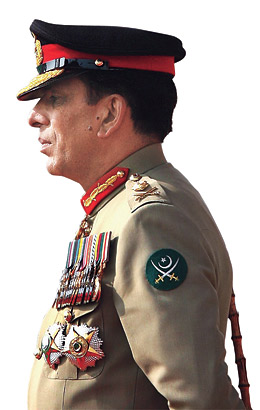
I don't remember all the details of my first meeting with General Ashfaq Kayani, the Pakistan army's Chief of Staff. But I do remember thinking, Here is a man with a plan, a leader who knows where he wants to go. He seemed to understand the nature of the extremist threat inside Pakistan, recognized that his army wasn't ready to meet that threat and had already started working up solutions.
So far he's done everything he told me he would do. He said he would provide the Frontier Corps with material support and strong leaders. He did it. He said he would send more Pakistani army troops to the northwest border region. He sent nearly 2,000. He said he would use those troops to go after alQaeda and extremist groups in Bajur and the Swat Valley. They have mounted several operations in just the past few months.
There's much more to do, of course. But I also think it's important to look at what Kayani hasn't done. For starters, he hasn't let the army meddle in politics. Kayani helped foster a peaceful outcome to last year's constitutional crisis, but he did it in a way that was totally in keeping with his military responsibilities. He also hasn't let tension over the involvement of Pakistan-based militants in the Mumbai terrorist attacks spin out of control.
General Kayani, 57, commands an army with troops fighting in what President Barack Obama has rightly called the "most dangerous place in the world." He's lost more than 1,000 soldiers in that fight. He knows the stakes. He's got a plan.
Mullen is Chairman of the U.S. Joint Chiefs of Staff